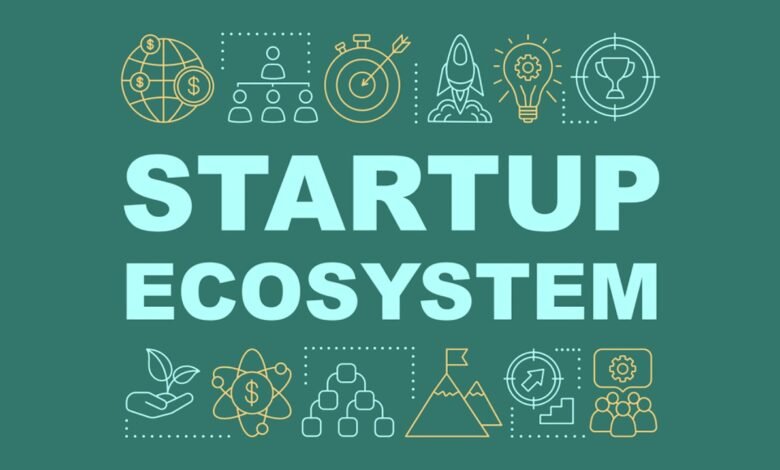Exploring the Startup Ecosystem in Pakistan

The startup ecosystem in Pakistan has been experiencing significant growth and development in recent years. With a combination of favorable factors such as rising investments, supportive government initiatives, and a pool of talented entrepreneurs, Pakistan has become an attractive destination for startups. In this article, we will explore the startup ecosystem in Pakistan in 2023, highlighting its growth, key sectors, challenges, success stories, government initiatives, and future outlook.
Pakistan, with its young population and increasing digital connectivity, has witnessed a surge in entrepreneurial activities. The startup ecosystem in the country is characterized by innovation, creativity, and a drive to solve local and global challenges. Startups in Pakistan are leveraging technology to address various sectors, including e-commerce, fintech, health tech, agriculture, and information technology.
Read more: Immersive Advertising: The New Advertising Ecosystem
Growth and Potential of Startups in Pakistan

The growth of startups in Pakistan can be attributed to several factors. Firstly, there has been a significant increase in investments and funding opportunities for startups. Both local and international investors are recognizing the potential of Pakistani startups and are actively supporting them financially. This influx of capital has enabled startups to scale their operations, develop innovative solutions, and expand their reach.
Furthermore, the government of Pakistan has implemented various initiatives to foster a conducive environment for startups. These initiatives include the establishment of startup incubators, tax incentives for investors, and simplified regulatory procedures. The government’s focus on promoting entrepreneurship and innovation has created a supportive ecosystem for startups to thrive.
The availability of a talented pool of entrepreneurs is another driving force behind the growth of startups in Pakistan. Many young individuals are pursuing entrepreneurship as a career option, encouraged by the success stories of local startups. This influx of talent, coupled with a growing culture of entrepreneurship, has fueled the startup ecosystem in the country.
Key Industries and Sectors for Startups
Several industries and sectors in Pakistan have witnessed significant startup activity. One of the prominent sectors is Information Technology and Software Development. Pakistani startups in this sector have been successful in providing software solutions, mobile applications, and IT services both locally and internationally.
E-commerce and online marketplaces have also experienced remarkable growth in Pakistan. With the increasing penetration of the internet and the rise of digital payments, startups have capitalized on the opportunity to provide convenient online shopping experiences to consumers.
Fintech and digital payments are other thriving sectors in the startup ecosystem. Startups in this domain are disrupting traditional banking systems by offering innovative solutions such as mobile wallets, peer-to-peer lending platforms, and digital remittance services.
The healthcare industry has also witnessed the emergence of health tech startups. These startups are leveraging technology to provide telemedicine services, health monitoring devices, and healthcare management solutions. The COVID-19 pandemic further accelerated the adoption of digital healthcare services in Pakistan, creating opportunities for startups in this sector.
Additionally, startups focusing on agriculture and AgriTech have gained traction in Pakistan. These startups aim to improve farming practices, enhance crop yield, and address the challenges faced by the agriculture sector through innovative technologies.
Startup Incubators and Accelerators
Incubators and accelerators play a crucial role in nurturing and supporting startups in Pakistan. These organizations provide startups with mentorship, networking opportunities, workspace, and access to funding. They also offer specialized programs to enhance the business skills of entrepreneurs and help them scale their ventures.
Some of the prominent incubators and accelerators in Pakistan include the National Incubation Center (NIC), Plan9, The Nest i/o, and Invest2Innovate (i2i). These organizations have contributed significantly to the growth of startups by providing them with the necessary support and guidance.
Challenges and Opportunities for Startups
While the startup ecosystem in Pakistan has witnessed remarkable growth, it still faces certain challenges. Access to funding and investment remains a major hurdle for startups, especially in the early stages. Although the investment landscape has improved, there is a need for more venture capital funds and angel investors to support promising startups.
Infrastructure and technological advancements are other areas that require attention. While major cities like Karachi, Lahore, and Islamabad have relatively better infrastructure, there is a need to develop technology hubs and innovation centers across the country. Access to high-speed internet, affordable cloud services, and reliable logistics are essential for startups to operate efficiently.
Regulatory and policy hurdles can also hinder the growth of startups. Simplifying the registration process, reducing bureaucratic red tape, and introducing startup-friendly policies can create a more favorable environment for entrepreneurs.
Furthermore, talent acquisition and skill development remain a challenge for startups in Pakistan. Although the country has a pool of talented individuals, there is a need for specialized training programs and initiatives to bridge the skill gap and foster entrepreneurship.
Despite these challenges, there are several opportunities for startups in Pakistan. The growing population, increasing digital literacy, and untapped market segments present immense potential for startups to develop innovative solutions and cater to the needs of the local population.
Success Stories of Pakistani Startups
The startup ecosystem in Pakistan boasts several success stories that have made a significant impact. Byju’s, an EdTech startup, successfully expanded its operations to Pakistan and is providing quality educational resources to students. Another notable success story is Careem, a ride-hailing startup that was acquired by Uber. Careem transformed the transportation landscape in Pakistan and paved the way for other startups in the sharing economy.
Government Initiatives and Policies
The government of Pakistan has taken several initiatives to promote the growth of startups. The establishment of the Pakistan Startup Visa program allows foreign entrepreneurs to set up their businesses in Pakistan. This program aims to attract international talent, foster innovation, and create job opportunities.
The government has also introduced tax incentives for investors and startups, such as tax exemptions and reduced tax rates. These measures are intended to encourage investment in startups and provide them with financial stability.
Future Outlook and Growth Potential
The future of the startup ecosystem in Pakistan looks promising. With the government’s continued focus on promoting entrepreneurship and innovation, the ecosystem is expected to further evolve. The rise of emerging technologies such as artificial intelligence, blockchain, and the Internet of Things presents new avenues for startups to explore and disrupt traditional industries.
Moreover, international collaborations and partnerships can play a vital role in the growth of Pakistani startups. Collaborating with global players, accessing international markets, and sharing knowledge and resources can significantly enhance the competitiveness of startups.
conclusion
In conclusion, the startup ecosystem in Pakistan has shown remarkable growth and potential in 2023. With increasing investments, supportive government initiatives, and a pool of talented entrepreneurs, Pakistan has become an attractive destination for startups. However, challenges such as access to funding, infrastructure development, and regulatory hurdles need to be addressed to unlock the full potential of the ecosystem. By leveraging opportunities, nurturing talent, and fostering innovation, the startup ecosystem in Pakistan is poised for continued growth and success.
Read more: A Guide to Buying Smartphones in Pakistan: Everything You Need to Know
FAQs
Are there any specific sectors that are driving the growth of startups in Pakistan?
Yes, several sectors are driving the growth of startups in Pakistan, including information technology, e-commerce, fintech, health tech, and AgriTech.
What role do incubators and accelerators play in supporting startups?
Incubators and accelerators provide startups with mentorship, networking opportunities, workspace, and access to funding. They play a crucial role in nurturing and guiding startups toward success.
What are the major challenges faced by startups in Pakistan?
Some of the major challenges faced by startups in Pakistan include access to funding, infrastructure development, regulatory hurdles, and talent acquisition.
How is the Pakistani government supporting startups?
The Pakistani government has implemented various initiatives, such as startup incubators, tax incentives for investors, and simplified regulatory procedures, to foster a conducive environment for startups.
What is the future outlook for the startup ecosystem in Pakistan?
The future of the startup ecosystem in Pakistan looks promising, with the government’s continued focus on promoting entrepreneurship and innovation, as well as the rise of emerging technologies and international collaborations.











